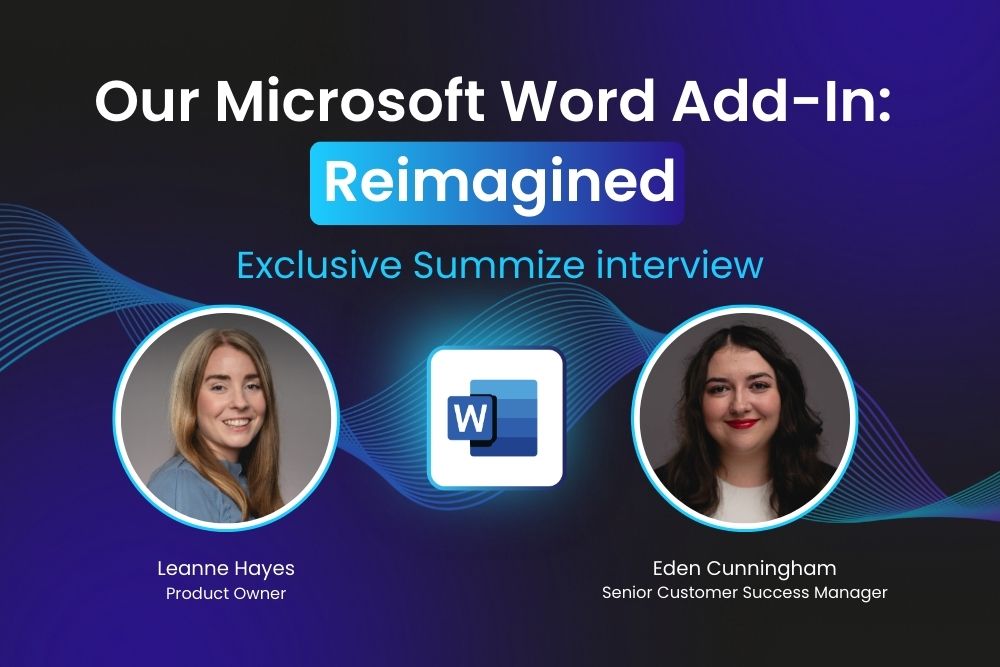Contract playbooks and CLM: speeding up in-house legal decision-making
How contract playbooks make legal judgment reusable, reduce bottlenecks and help in-house teams apply consistent risk decisions at scale.
February 20, 2026
February 23, 2026
- Legal teams don’t struggle because they lack knowledge – they struggle because that knowledge doesn’t scale.
- A contract playbook makes legal judgment reusable and consistent.
- That reduces bottlenecks, shortens review cycles and protects senior lawyers’ time.
- When embedded into contract lifecycle management (CLM) workflows, playbooks turn agreed positions into repeatable, practical processes.
In-house legal teams don’t struggle because they lack knowledge – it’s because that knowledge doesn’t scale.
Looking at the ways contracts are reviewed in most organizations, patterns start to repeat – the same clauses raise the same questions, similar risk positions are debated over and over, and even when the commercial context hasn’t changed, contracts are often reviewed as if they’re entirely new.
Over time, legal judgment gets scattered across individuals, inbox threads and informal guidance. When that happens, review cycles stretch out and senior lawyers get pulled into the same discussions. These challenges tend to emerge when there’s no shared, structured guidance the whole team can rely on – such as an effective contract playbook.
How does a contract playbook help legal scale its judgment?
A contract playbook is a single, reusable asset that captures your legal team’s judgement, so that you don’t have to make every decision from scratch. It allows your knowledge to scale, just as your business does.
When embedded into your contract lifecycle management (CLM) workflows, that knowledge becomes part of the process itself. It ensures consistent application, reduced friction and overall supports faster, more predictable reviews.
An effective playbook:
- Captures legal judgment once, avoiding repeated tasks
- Removes uncertainty around acceptable risk
- Creates consistency across the team, regardless of experience level
By documenting preferred positions, acceptable fallbacks, approval thresholds and more, your playbook empowers junior lawyers and non-legal teams to act with more confidence and only escalate when it really matters.
Who are contract playbooks for?
For your legal team
The immediate benefit of a playbook for legal teams is confidence and clarity. Playbooks are most powerful when they support:
- Junior lawyers handling higher-value or higher-risk work with confidence
- Faster onboarding and knowledge sharing
- Less ad-hoc questions that get in the way of legal time
- More consistent decision-making across teams
Rather than replacing legal judgment, a playbook sets clear guardrails and defines what’s acceptable, what isn’t, and when to escalate. This frees up senior lawyers in your team to focus on genuinely complex issues, instead of re-litigating the same positions.
For teams outside legal
A contract playbook can also have an impact outside legal, especially when it comes to low-risk, high-volume contracts like NDAs. A playbook can support limited self-service where appropriate, allowing non-legal teams to:
- Work within pre-approved positions
- Understand when legal needs to be involved
- Move quickly on routine work without increasing risk
Legal remains involved where you genuinely add value, while routine work moves faster, resulting in shorter sales cycles and fewer avoidable delays.
What should your playbooks include?
One reason teams put off creating playbooks is the assumption that they need to be comprehensive, detailed documents. In reality, there’s no standard length. The right size is the one that reflects where your team spends time and makes judgment calls.
In practice, playbooks only need to answer the questions your teams actually have when reviewing contracts, such as:
- What’s our usual position on this?
- What alternatives are acceptable?
- When does this need escalation?
- What’s considered low versus higher risk?
- Who can approve deviations?
- Are there any clear deal-breakers?
- What trade-offs are we generally comfortable with?
- Where’s the best precedent or approved wording?
If those questions are answered clearly, review becomes more structured and less repetitive. In practice, manual contract review is time-intensive: the average legal team spends more than three hours reviewing a single contract. A structured playbook reduces this burden by capturing repeatable judgment just once.
“The most useful playbooks aren’t the longest ones – they’re the ones people actually use. If it answers the real questions your team and commercial colleagues ask during negotiation, it’s doing its job. Start with the patterns you see every week and build from there.”
Kate Rowlson, Legal Engineering Team Lead
How does a playbook augment your CLM?
On their own, contract playbooks bring structure and consistency to legal decision-making. But when combined with automation and legal tech, their impact increases significantly.
Research by the Aberdeen Group shows that contract automation can reduce the average contract cycle time by up to 50% - and that kind of acceleration is far more achievable when automation is guided by clearly defined legal guardrails.
Many teams invest in a contract lifecycle management (CLM) tool for visibility and process control – tracking status, managing approvals and centralizing documents. But without agreed legal positions underpinning those workflows, CLM can only manage process, not judgment.
When your legal positions, fallback clauses and escalation thresholds are clearly defined, they can be embedded directly into your contract processes. That means:
- Approved language and fallback positions can be surface automatically during drafting or negotiations
- AI-powered review can benchmark incoming contracts against your playbook guardrails to provide a faster first-pass assessment
- Approval rules can trigger dynamically based on risk thresholds you’ve already defined
- Low-risk contracts can move through safe self-serve pathways without unnecessary legal intervention
Instead of relying on your team to remember that “our fallback is usually three years,” the system embeds that position directly into the contracting process. This reduces avoidable escalations, enables more consistent decisions, and overall a smoother path from draft to signature.
{{testimonial 1}}
If you’re looking for ways to make legal and sales run quicker, embedding a practical, usable playbook into your CLM workflows is a strong place to start. If you’re looking to make this work seamlessly in your existing processes, explore how Summize’s CLM solution helps teams turn legal guidance into something they can use every day.
There's lots of functionality in Summize in terms of playbooks and clause summaries that will more help us be more efficient as a team.



Discover even more!
Explore more about contracting and CLM in our ultimate contract guides







